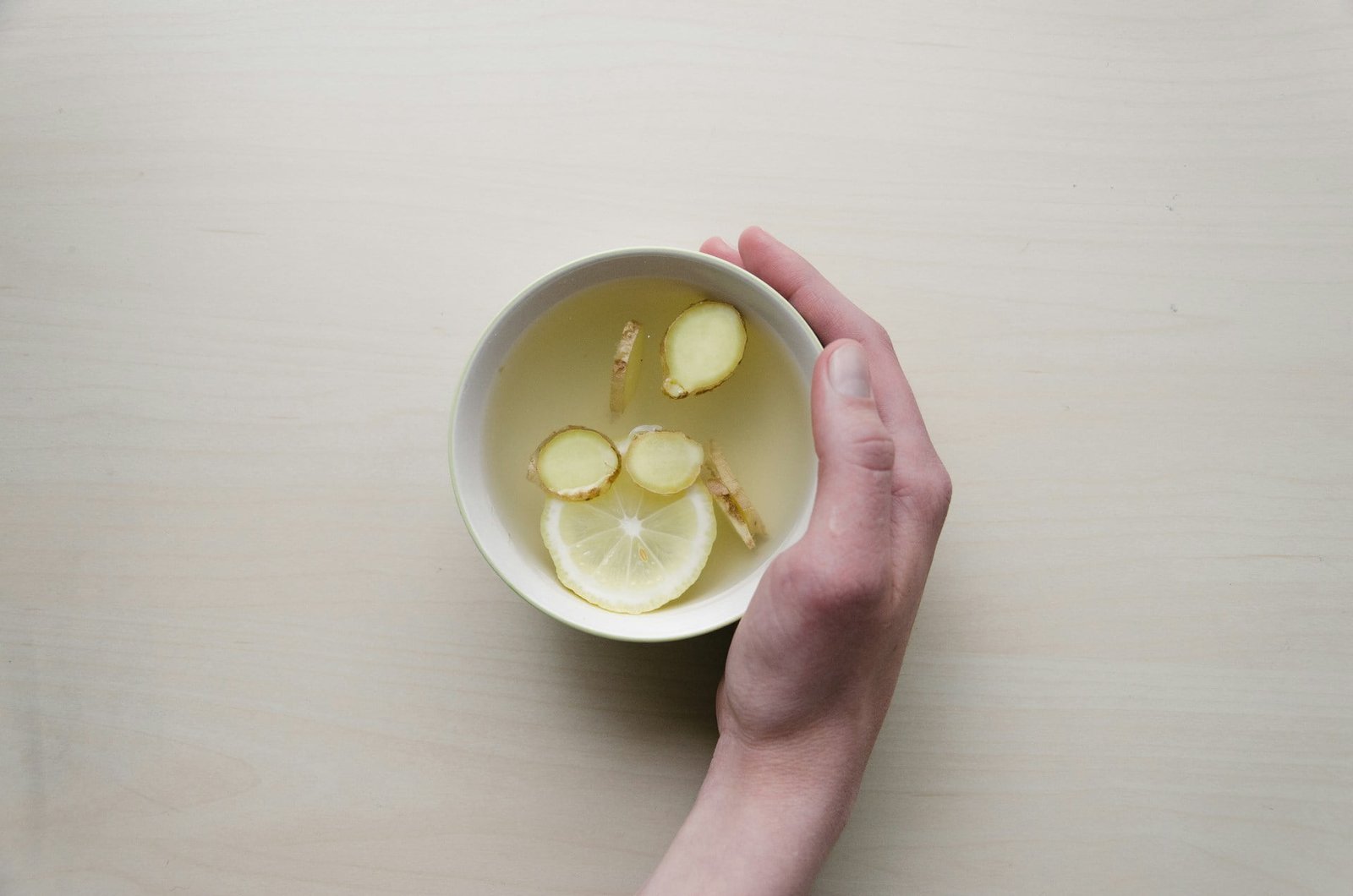Digestion Imbalances

Digestion Imbalances
Understanding Digestion in Ayurveda:


Tips for Balancing Digestion:
Eat Only When Hungry
Practice Mindful Eating
Tailor Your Diet to Your Dosha
Morning Warm Water Routine
Maintain Regular Mealtimes
Incorporate Digestive Herbs
Eat Until 2/3 or 3/4 Full
Avoid overeating by stopping when you feel about 2/3 or 3/4 full. This allows your stomach to properly digest the food without feeling overly stuffed, reducing the risk of indigestion and discomfort.





Importance of Daily Routine
Dinacharya: The Ayurvedic Daily Routine
Dinacharya, or the daily routine, aims to synchronize your body’s natural rhythms with the cycles of nature. Following a structured daily routine can enhance your overall health and promote balance.

Importance of Daily Routine


Daily Routine Tips
Morning Rituals
Waking up early in the morning aligns your body with the natural rhythm of the sun, helping you feel more energized and focused throughout the day. Ayurveda recommends waking up during the Brahma Muhurta (about 90 minutes before sunrise) for optimal health. If it is difficult, then wake up early, ideally before sunrise. Start by brushing your teeth and using a tongue scraper to cleanse your mouth. Drinking warm water would help in digestion.
Exercise
Engage in moderate exercise suited to your dosha. Gentle yoga is beneficial for vata types, swimming or moderate exercise for pitta types, and vigorous activities for kapha types.
Abhyanga (Oil Massage)
Perform a self-massage with warm sesame or coconut oil before bathing. This practice nourishes the skin, improves circulation, and calms the mind. However, it is important to assess your toxin (ama) levels before starting this practice.
Meditation and Pranayama
Spend time in meditation and practice breathing exercises to center your mind and reduce stress. Techniques like nadi -shodhana (alternate nostril breathing) are particularly effective.
Regular Sleep Schedule





Stress and Mental Health

Stress and Mental Health
Ayurvedic Perspective on Mental Health


Tips for Managing Stress and Enhancing Mental Health
Use Adaptogenic Herb
Eat a Balanced Diet
Maintain a Routine
A consistent daily routine provides stability and helps reduce stress. Regular sleep, mealtimes, and work patterns contribute to mental well-being.
Ensure Adequate Rest
Sleep is critical for maintaining mental health. Try to get 7-8 hours of sleep each night. If you need a boost during the day, a short nap (around 15-20 mins) can be helpful.
Practice Mindfulness













Practice Deep Breathing
Engage in deep breathing exercises to help alleviate stress and induce relaxation. Spend several minutes each day focusing on slow, deep breaths to calm your mind and enhance mental clarity. Techniques like Pranayama can be particularly effective for these purposes. Do this before meditation.













Practice Meditation
Engaging in meditation daily can help soothe the mind, alleviate stress, and sharpen mental focus. Spend at least 10-15 minutes each day practicing techniques such as mindfulness or Transcendental Meditation to boost your mental health.













Connect with Nature
Immersing yourself in nature can greatly reduce stress and boost mental health. Make it a habit to take regular walks in the park or spend time in your garden to refresh your mind. Activities like grounding, which involve walking barefoot on natural surfaces, can deepen your connection to the earth and further alleviate stress.





Detoxification
Ayurvedic Detoxification (Panchakarma)
Panchakarma is Ayurveda’s primary detoxification and rejuvenation therapy. It involves procedures to cleanse the body of accumulated toxins and restore balance.

Detoxification


Detox Tips
Understand Panchakarma
Incorporate Detoxifying Foods
Home Detox
Supervised Detox
Stay Hydrated
Follow a Light Diet
Promote Sweating
Engage in regular physical activity or steam therapy to encourage sweating and toxin release, provided you don’t have an aggravated pitta. Consult your Ayurvedic practitioner to assess your dosha imbalance and recommend the best approach for promoting sweating based on your individual needs.





Strengthen Immunity

Strengthen Immunity
Building Ojas for Immunity
Ojas is the essence of immunity and vitality in Ayurveda. Strong ojas is a sign of good health and a robust immune system.


Immunity Boosting Tips
Eat a Nutrient-Rich Diet
Prioritize Sleep
Use Herbal Tonics
Incorporate Ayurvedic herbal tonics to support stress reduction, boost immunity, and enhance overall health. It is important to consult with your Ayurvedic practitioner or healthcare provider to ensure these tonics are appropriate for your specific dosha and health condition.
Manage Stress
Practice stress-reducing techniques like yoga, meditation, and pranayama.
Daily Abhyanga (Self-Massage)
Incorporate warm oil self-massage into your daily routine using oils like sesame or coconut or almond. This practice improves circulation, aids in detoxification, nourishes the skin, enhances immunity, promotes relaxation, and reduces stress. However, it is important to assess your toxin (ama) levels before starting this practice.
Balanced Diet
Tailoring your diet to match your dosha can greatly enhance your immune system and overall well-being. For example,


Vata Dosha













Nourishing Warm Foods
Soups, stews, and warm cereals are beneficial.













Healthy Oils
Small amount of ghee, sesame oil, and coconut oil to add moisture to your meals.













Comforting Flavors
Sweet, sour, and salty foods help balance vata.


Pitta Dosha













Cooling Fresh Foods
Fresh vegetables and fruits such as cucumbers, melons, and leafy greens are ideal.













Mild Seasonings
Herbs like coriander, mint, and cilantro can help cool the digestive fire.













Balancing Tastes
Focus on bitter, sweet, and astringent foods. Include grains, legumes, and bitter greens in your diet.


Kapha Dosha













Light and Energizing Foods
Steamed vegetables, barley, and millet are good choices.













Invigorating Spices
Spices such as ginger, turmeric, and black pepper can help stimulate digestion.













Balancing Flavors
Emphasize bitter, pungent, and astringent foods. Add plenty of green vegetables, spices, and beans.
Regardless of your dosha, incorporate foods rich in vitamins C and E, zinc, and omega-3 fatty acids into your diet. Consuming a wide array of colorful fruits and vegetables will help you obtain a broad spectrum of vital nutrients.
Stay Hydrated
Ensuring you stay well-hydrated is vital for your immune health. Drink plenty of water throughout the day to keep your body hydrated and aid in toxin removal. Herbal teas like tulsi (holy basil) tea can also enhance your immune system.
Get Enough Sleep
Disclaimers: The information provided on this document is for educational purposes only and is not intended as medical advice. Please consult with a healthcare professional before starting any new health practices or if you have any health concerns.
